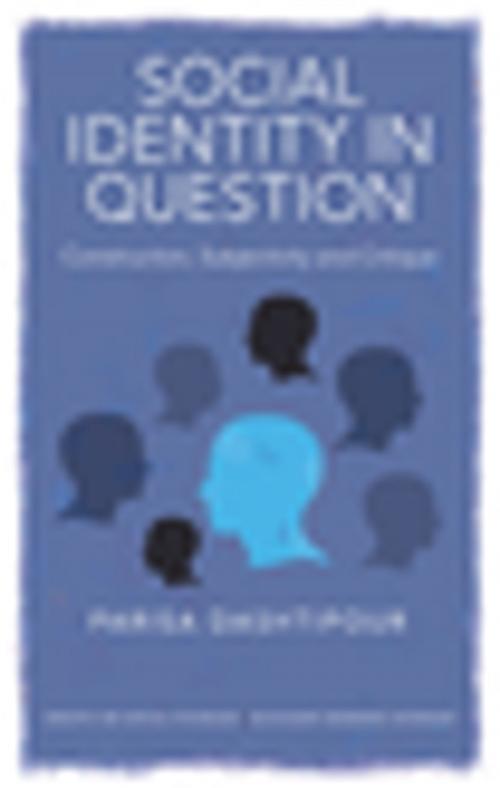Social Identity in Question
Construction, Subjectivity and Critique
Nonfiction, Health & Well Being, Psychology, Personality| Author: | Parisa Dashtipour | ISBN: | 9781136245374 |
| Publisher: | Taylor and Francis | Publication: | July 26, 2012 |
| Imprint: | Routledge | Language: | English |
| Author: | Parisa Dashtipour |
| ISBN: | 9781136245374 |
| Publisher: | Taylor and Francis |
| Publication: | July 26, 2012 |
| Imprint: | Routledge |
| Language: | English |
Social identity theory is one of the most influential approaches to identity, group processes, intergroup relations and social change. This book draws on Lacanian psychoanalysis and Lacanian social theorists to investigate and rework the predominant concepts in the social identity framework.
Social Identity in Question begins by reviewing the ways in which the social identity tradition has previously been critiqued by social psychologists who view human relations as conditioned by historical context, culture and language. The author offers an alternative perspective, based upon psychoanalytic notions of subjectivity. The chapters go on to develop these discussions, and they cover topics such as:
- self-categorisation theory
- group attachment and conformity
- the minimal group paradigm
- intergroup conflict, social change and resistance
Each chapter seeks to disrupt the image of the subject as rational and unitary, and to question whether human relations are predictable. It is a book which will be of great interest to lecturers, researchers, and students in critical psychology, social psychology, social sciences and cultural studies.
Social identity theory is one of the most influential approaches to identity, group processes, intergroup relations and social change. This book draws on Lacanian psychoanalysis and Lacanian social theorists to investigate and rework the predominant concepts in the social identity framework.
Social Identity in Question begins by reviewing the ways in which the social identity tradition has previously been critiqued by social psychologists who view human relations as conditioned by historical context, culture and language. The author offers an alternative perspective, based upon psychoanalytic notions of subjectivity. The chapters go on to develop these discussions, and they cover topics such as:
- self-categorisation theory
- group attachment and conformity
- the minimal group paradigm
- intergroup conflict, social change and resistance
Each chapter seeks to disrupt the image of the subject as rational and unitary, and to question whether human relations are predictable. It is a book which will be of great interest to lecturers, researchers, and students in critical psychology, social psychology, social sciences and cultural studies.















